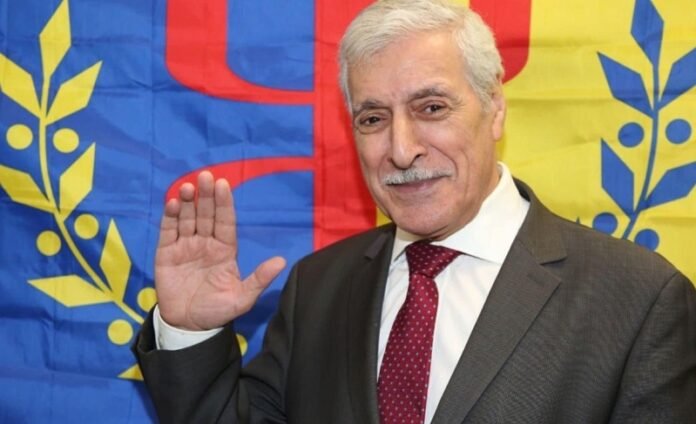Ferhat Mehenni, the President of the Provisional Government of Kabylia (Anavad) and the Movement for the Self-Determination of Kabylia (MAK), has accused the Algerian authorities of attempting to fabricate a new case involving an alleged arms smuggling operation discovered at the port of Béjaïa, supposedly connected to the MAK. Mehenni believes this move is intended to divert attention from the recent diplomatic failures Algeria has faced and the general apathy towards the upcoming presidential election, scheduled to take place in less than a month.
In a statement, the Algerian Ministry of National Defense announced the discovery of weapons and live ammunition at the port of Béjaïa, accusing a member of the MAK of trying to illegally bring them into Algeria from the port of Marseille, France. The Algerian authorities claim that the arrested individual admitted to being a member of the MAK and that the weapons were purchased and planned to be smuggled in by a “terrorist” network.
However, Ferhat Mehenni strongly denies these accusations, describing them as “another attempt by the Algerian regime to cover up its successive diplomatic failures, particularly after France’s recognition of the Moroccan Sahara.” Mehenni insists that the MAK is a peaceful movement and that it has never planned any terrorist operations, calling for an international investigation to uncover the truth behind these allegations.
Mehenni points out that the Algerian authorities are trying to distract public attention from the wildfires that have ravaged the Tizi Ouzou region in Kabylia for the fourth consecutive year, allegedly started by aerial means. He accuses the Algerian regime of using these accusations against the MAK to avoid taking responsibility and turning the victim into the perpetrator.
Mehenni attributes these actions to the loss of composure by the Algerian authorities due to recent diplomatic failures, the general disinterest in the presidential elections, and Morocco’s intervention at the United Nations to remind the world of the Kabyle people’s right to self-determination. He believes Algeria is looking for a scapegoat in the MAK to divert attention.
Mehenni praises Morocco’s “honorable” stance, with the intervention of Morocco’s Ambassador and Permanent Representative to the United Nations, Omar Hilale, who defended the Kabyle people in his letter to the Security Council. He highlights the marginalization suffered by the Kabyle people, whose population exceeds 7 million, living in poverty, and whose youth and women are persecuted, with their rights to expression, assembly, association, freedom of movement, and preservation of their Kabyle culture and identity being violated daily.
Mehenni calls on the European Union, particularly the former colonial power France, the African Union, and the United States to conduct their own investigations to uncover the truth. He notes that history is repeating itself, with similar accusations being made over the past decades as part of efforts by the authorities to portray the peaceful movement as a terrorist organization in the eyes of the international community.
This case raises questions about the motivations of the Algerian authorities in making these accusations against the MAK and how it might affect the future of the Kabylia region as it seeks to determine its own destiny.


